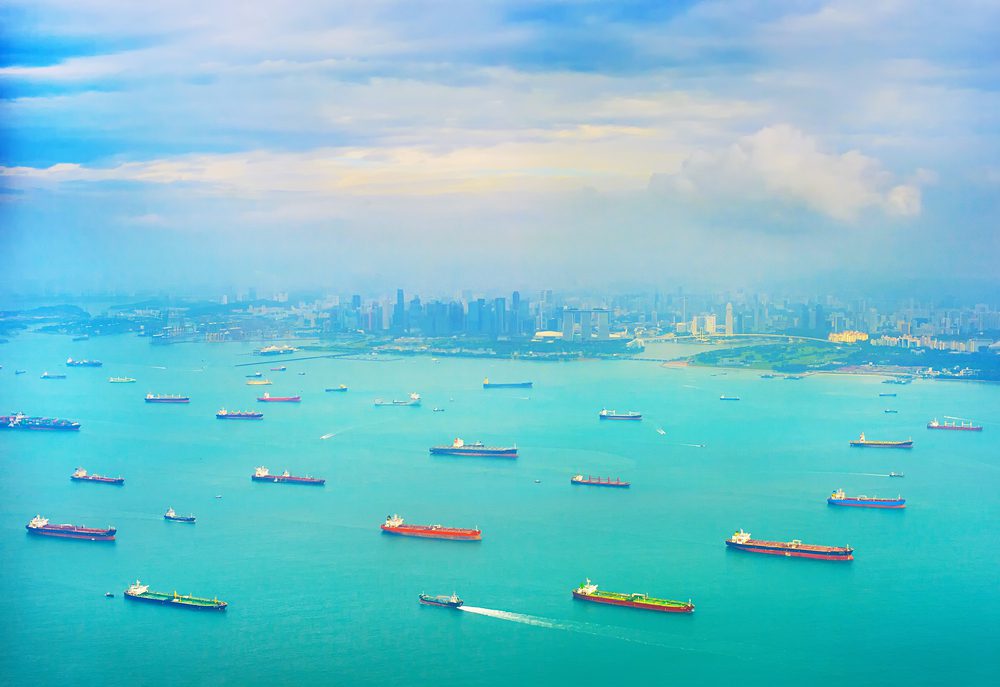Photo: joyfull / Shutterstock
 By Roslan Khasawneh SINGAPORE, July 27 (Reuters) – Contaminated marine fuel that clogs and damages ship engines has been found in Singapore, the world’s largest ship refuelling hub, according to sources and an alert sent to clients by a marine fuel surveying company.
By Roslan Khasawneh SINGAPORE, July 27 (Reuters) – Contaminated marine fuel that clogs and damages ship engines has been found in Singapore, the world’s largest ship refuelling hub, according to sources and an alert sent to clients by a marine fuel surveying company.
Singapore-based marine fuel surveyor and consulting firm Maritec Pte Ltd warned clients this week that six samples of ship fuel sold in Singapore had “resulted in severe sludging at centrifuges, clogged pipelines, overwhelmed fuel filters”.
The Singapore findings follow reports of more than 100 vessels that loaded similarly contaminated fuel in the U.S. Gulf Coast, Panama and the Dutch Antilles earlier this year, said the alert notice, provided to Reuters by a Singapore-based bunker fuels trader.
Now the problem fuel has made its way to Asia.
“The test results of the Singapore samples seems to point to both “Estonian type oil shale” and “U.S. type fracked shale oil” being sold into Singapore, the surveyor said.
“Fuels from Singapore are exported to all ASEAN countries and even all the way to Hong Kong. It should be therefore be expected that the whole region will be affected,” Maritec said.
Contaminated marine fuels can cause costly damage to ship engines, and many of the vessels that took on the tainted batches earlier this year required extensive flushing and repair before being put back to work, four trade sources said.
Singapore-based traders of marine fuel, or bunker fuel, say the contaminated fuels are hard to detect because they pass industry standards but contain compounds not usually tested for.
Some U.S. fuel oil products have been coming into Singapore recently, and more should be arriving in August, said a Singapore-based bunker fuel trader.
The shipments had “high levels of styrene and phenols along with other plastic related compounds,” he said.
The Singapore Maritime and Port Authority said it could not immediately respond to a request for comment.
At least two cargoes of the contaminated fuel oil of to 270,000 tonnes each, were shipped into Singapore over the past month, and have contributed to a spike in bunker prices as the availability of on-specification fuels has tightened, the trade sources said.
The first problem sample in Asia emerged on April 13 in Port Kelang in Malaysia, and resulted in a “dead ship” that had to be towed back to port from off the coast of Vietnam with all fuel pumps damaged, said the Maritec alert.
“The problem fuel fully met the ISO8217:2005 specifications in all respects but was found to contain chemicals not from petroleum refining,” Maritec said. (Reporting by Roslan Khasawneh; Editing by Tom Hogue)
(c) Copyright Thomson Reuters 2018.

 Join The Club
Join The Club











